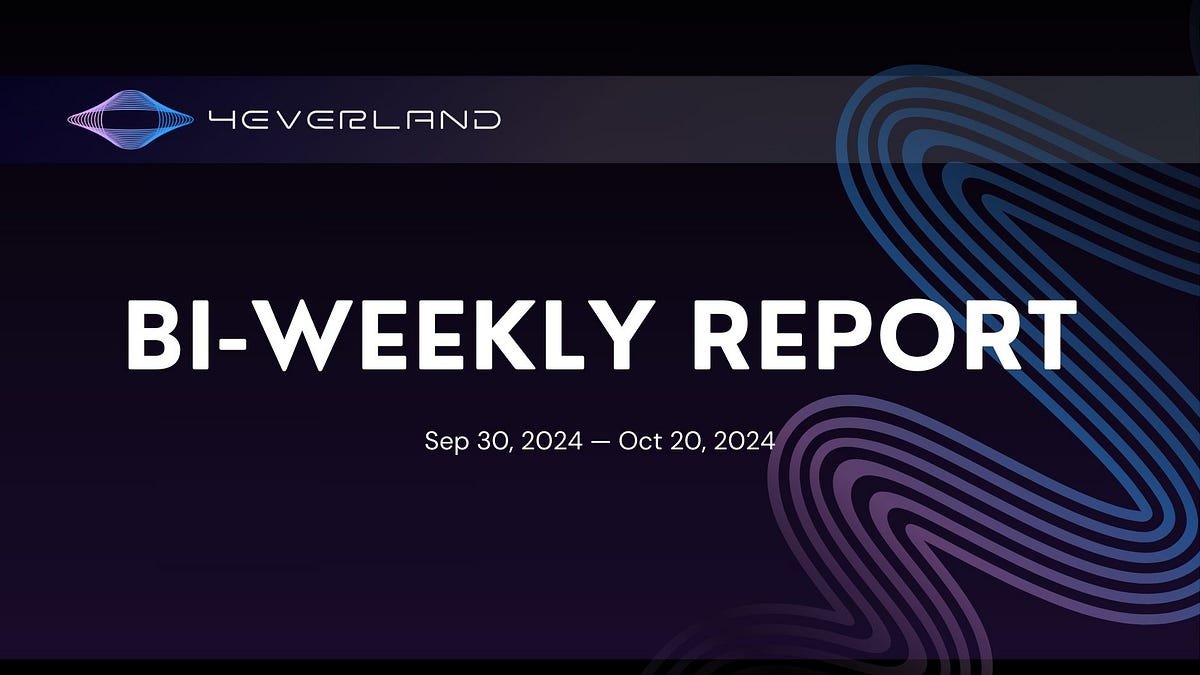4EVERLAND Bi-Weekly Report: Exciting Developments and Future Plans

In the latest edition of the 4EVERLAND Bi-Weekly Report, the project has showcased significant advancements and community engagement over the past two weeks. Notable developments include the introduction of new features such as Telegram login support on the 4EVERLAND Dashboard and the integration of advanced large language models like GPT-4o-mini and Llama 3.2 into the 4EVERLAND AI RPC. Additionally, the 4EVER Boost Webpage and Telegram Mini App have seen enhancements with the launch of the “Mystery Code” feature and an Invite Module that rewards users for bringing in new participants. These updates are part of 4EVERLAND’s strategy to enhance user experience and foster community growth.
The report highlights impressive user growth, with 198,307 new users joining the platform, marking a significant milestone. Total transactions reached 132,549, and the number of active users stands at 28,603. The global node distribution ensures high availability and low latency, further solidifying the operational capabilities of the project. Community activities, such as the Template-a-thon Challenge and the 4EVER Boost Campaign, have also contributed to the platform’s engagement, allowing users to earn rewards through participation and contributions.
Looking ahead, 4EVERLAND is focused on continuous improvement and expansion. Upcoming plans include technical upgrades to enhance performance and security, as well as collaborations with additional projects to broaden the ecosystem. The team is committed to strengthening community interactions and actively seeking user feedback to drive future developments. With these initiatives, 4EVERLAND aims to create a vibrant and innovative Web3 experience for its users, ensuring a promising future for the project.
Related News





